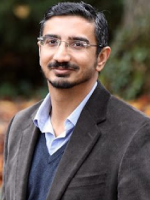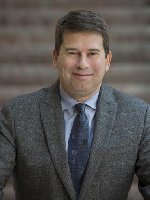April 19, 2023
@
5:30 pm
–
7:00 pm
There is an emerging yet nascent consensus among International Relations
scholars about the fading of the Manichean world order. The binary lens
of great powers and bipolarity; democracy and authoritarianism; norm
creators and receivers, is no longer sufficient to explain the
contemporary geopolitical developments. The fate of this multipolar,
polycentric world depends mainly on the choices made by ‘emerging
powers. Be it the post-pandemic recovery of the global economy largely
driven by emerging markets or the transition to clean energy, the demand
of which, again, is driven by the emerging markets of the ‘global
south’ or the increasing relevance of multilateral institutions, the
choices made by the emerging global south reflects the shifting global
zeitgeist.
India is one such emerging power whose current
strategic stance is the pinnacle of strategic autonomy, emphasizing
diplomatic activity, geopolitical pragmatism, placing national interests
before bloc politics, and maintaining connections with all parties so
that it can utilize these relations to get the best possible result,
even during times of global turbulence. However, despite these
developments, India risks becoming increasingly marginalized in an
emerging international order marked by renewed bifurcation fueled by the
Russian invasion of Ukraine and the China-U.S. strategic rivalry.
Developments in the Indo-Pacific can be seen as a microcosm of this. At
the same time, New Delhi maintains lukewarm support of more exclusive
and functionally driven plurilateral groupings, such as the Quad where
New Delhi remains unwilling to become enmeshed in the securitization of
institutionalized regional initiatives akin to the Five Eyes or AUKUS.
In this context, it remains to be seen if India’s long-standing
commitment to non-alignment/strategic autonomy will serve to strengthen
or weaken its position in the emerging global order.
This panel draws on the expertise of Dhruva Jaishankar and Pavel Luzin, moderated by our very own Prof. Daniel Drezner, to explain the variables that feed into the making of India’s policy choices in this evolving global order. Register via myFletcher.
 | Dhruva Jaishankar is Executive Director of the Observer Research Foundation America (ORF America). He is also a Non-Resident Fellow with the Lowy Institute in Australia and is a regular contributor to the media, presently writing a monthly column for the Hindustan Times.
Jaishankar was previously Director of the U.S. Initiative at the New Delhi-based Observer Research Foundation (ORF). Prior to that, he was a Fellow in Foreign Policy Studies at Brookings India in New Delhi and the Brookings Institution in Washington DC from 2016 to 2019. At Brookings India, he managed foreign and security policy programmes and conducted research on India's role in the Indo-Pacific, defence indigenization, and India-U.S. relations. From 2012 to 2016, he was a Transatlantic Fellow with the German Marshall Fund (GMF) in Washington DC, where he managed the India Trilateral Forum - a regular policy dialogue involving participants from India, Europe, and the United States - and researched the implications of digital technologies in developing democracies. From 2009 to 2012, he was programme officer with GMF, where he coordinated the institution's Asia Program. Before that, he worked as a research assistant at the Brookings Institution in Washington and as a news writer and reporter for CNN-IBN television in New Delhi. In 2015-2016, he was a Visiting Fellow at the S. Rajaratnam School of International Studies at Nanyang Technological University in Singapore, where he researched India-Japan security relations. |
 | Pavel Luzin is a Non-resident Senior Fellow with the Democratic Resilience Program at the Center for European Policy Analysis (CEPA).
Luzin holds a PhD in international relations (IMEMO, 2012). He is also a visiting scholar at the Fletcher School of Law and Diplomacy and a senior fellow at the Jamestown Foundation. Dr. Luzin is a contributor to the Foreign Policy Research Institute and to the Riddle Russia. He focuses on Russia’s foreign policy and defense, space policy, and global security issues. In 2017–2018, he was a consultant on the issues of armed forces, law enforcement agencies, and defense industry for Alexei Navalny’s presidential campaign in Russia. From 2016–2018, he was a consultant on Russia’s domestic politics for “Nations in Transit” project at Freedom House. In 2013–2014, Pavel Luzin was a research fellow at IMEMO. In 2013, he was an assistant to the editor-in-chief of the Security Index journal at the PIR Center. Dr. Luzin also was a lecturer and senior lecturer at Perm State University in 2010–2017, senior lecturer at Perm campus of the Higher School of Economics in 2011–2013, and visiting assistant professor there in 2018–2019. |
 | Daniel W. Drezner is Professor of International Politics, a nonresident senior fellow at the Chicago Council on Global Affairs, and the co-director of Fletcher's Russia and Eurasia Program.
Prior to joining The Fletcher School of Law and Diplomacy, he taught at the University of Chicago and the University of Colorado at Boulder. He has previously held positions with Civic Education Project, the RAND Corporation and the U.S. Department of the Treasury, and received fellowships from the German Marshall Fund of the United States, Council on Foreign Relations, and Harvard University. Drezner has written seven books, including All Politics is Global and Theories of International Politics and Zombies, and edited three others, including The Uses and Abuses of Weaponized Interdependence. He has published articles in numerous scholarly journals as well as in the New York Times, Wall Street Journal, Politico, and Foreign Affairs, and has been a regular contributor to Foreign Policy and the Washington Post. He received his B.A. in political economy from Williams College and an M.A. in economics and PhD in political science from Stanford University. |




